California Spring Trials
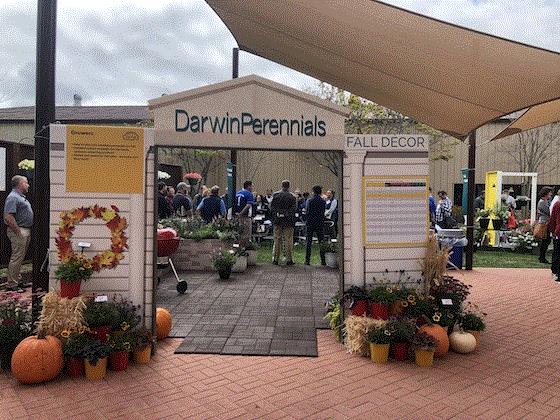
I've spent the last four days traveling through California (Los Angeles to San Jose) driving over 600 miles and visiting over a dozen trial locations. I don't have an exact head count, but I believe the consensus estimates there were 1,300 to 1,500 of us visiting the Spring Trials this year.
Most of this newsletter is devoted to sharing some of the exciting new perennials I saw. However, before I do so, I wanted to kick off the newsletter with a special edition of "What's Happening Here?"
Please Help
I have a friend (a grower) who has been experiencing some unusual things in his greenhouses recently. Take a look at what's going on.
|
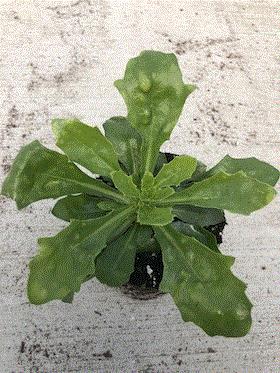
Osteospermum
|
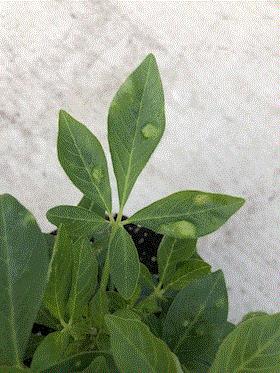
Cleome
|
I know these aren't perennials, but I'd like to help this grower out. There are a couple of perennials or shrubs (gaura and hydrangea) exhibiting similar symptoms, but the majority of them are annuals (15 to 20 of them). I think we've narrowed it down, but before coming to closure on this one, I thought I'd reach out to you to get your opinion. I don't want to lead you to the answer, but I can tell you that all diagnostic results have come back negative for insects, diseases, bacteria and viruses.
So now, my friends, can we please put our years of experience together and help out one of our own? If you've seen these symptoms before or have a hunch, I'd like to hear from you. Please email your ideas to me at ppilon@ballpublishing.com.
Thanks so much for helping us narrow this down. It will be nice to have some closure on this one. If we pull together and figure this one out, I'll share the results in the next newsletter.

Darwin Perennials
Nepeta Hybrid Blue Prelude

Here's a new nepeta I thought you'd enjoy seeing. This first-year flowering hybrid nepeta has large blue flowers and is great at attracting pollinators into the landscape. Blue Prelude blooms about the same time as other nepetas (late spring/early summer), but unlike the others, it blooms for months. In the landscape, it grows about 30 inches tall and wide (it'll be smaller in containers—particularly the first year) and is hardy to Zone 5.
Lavender angustifolia Annet
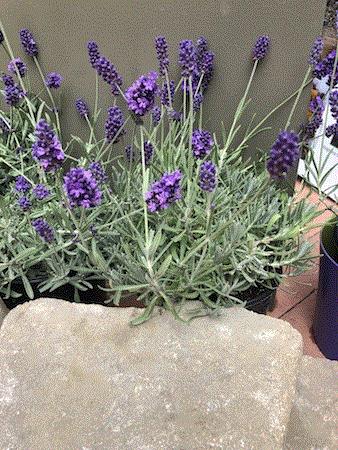
Besides its attractive silvery blue foliage and large purple flowers, one of the greatest attributes of this lavender is Annet's strong, sturdy stems. The thick stems of Annet allows it to easily ship without breakage or to be used in flower bouquets. This vegetatively propagated lavender grows 16 to 18 inches tall and is hardy to Zone 5.
Kieft/PanAmerican Seeds
Dianthus Rockin' Purple
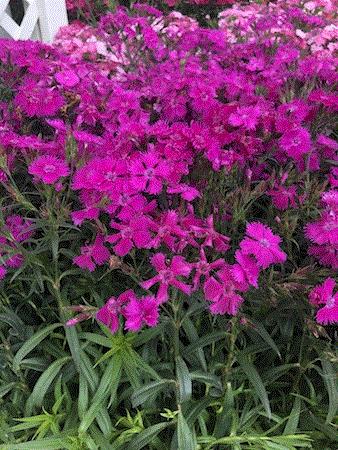
You've likely already seen Rockin' Red in the marketplace; Rockin' Red is no longer a solo act as Rockin' Purple joins the stage (I guess together they are a rockin' duet). Like its predecessor, Rockin' Purple has vivid color, durable performance and great shelf/landscape appeal. Hardy to Zone 5.
Greenfuse Botanicals
Salvia Swifty Violet Multiflora
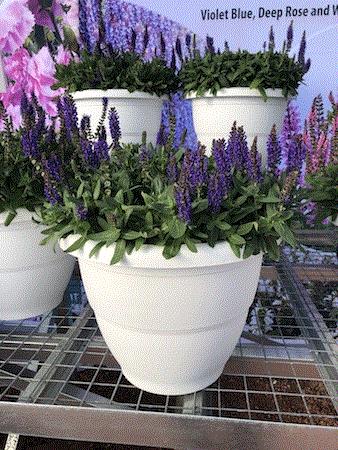
Notice the number of stems and flowers on this great looking salvia. The new Swifty Multiflora cultivars are very well-branched. I doubt you can really see how well-branched it is; it develops branches on branches. Best of all, flowers develop on each of the new branches, resulting in season-long flowering on Swifty Violet Multiflora and the other Swifty Multiflora cultivars. Hardy to Zone 3.
Leucanthemum Betsy
Looking for a leucanthemum that'll provide a large impression? Look no further than Leucanthemum Betsy. Her flowers are huge—5 to 7 inches across. She accomplishes this great task without the need for vernalization or long days. This is a great Zone 4 shasta daisy for large containers or the landscape.
Dümmen Orange
Phlox paniculata Flame Pro
|
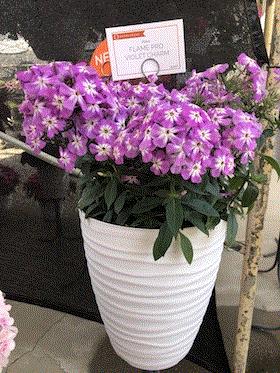
Flame Pro Violet Charm
|

Flame Pro Baby Doll
|
The new Flame Pro series officially became a series, as last year there was just a single cultivar and now there are five. The series features vibrant colors, large umbels and uniform flowering (blooming within seven days of each other). This compact (14 to 16 inches tall) garden phlox series is hardy to Zone 4.
Combinations Garden Party Duo
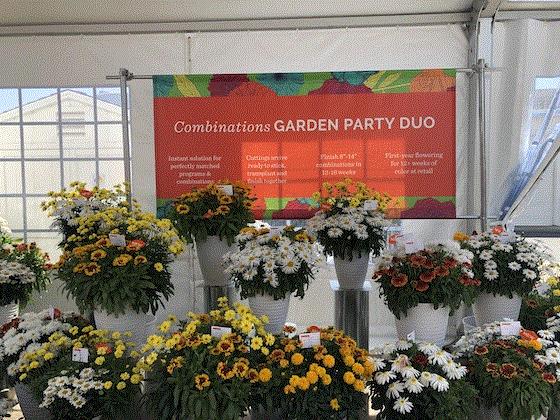
As you already know, I believe there is untapped potential with growing and marketing perennials in combinations. I've talked about the Dümmen Orange perennial combinations with you in the past, but now Dümmen Orange made perennial combos even simpler.
|
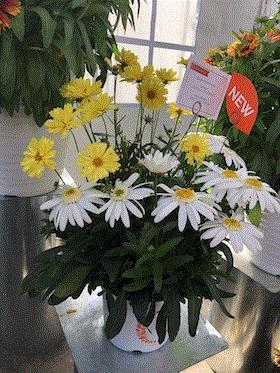
Coreopsis Leading Lady Sophia
Leucanthemum Sweet Daisy Birdy
|
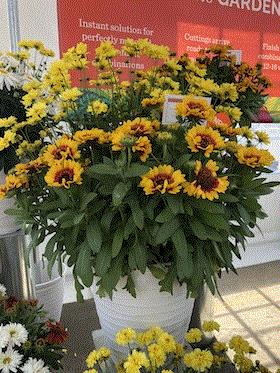
Coreopsis Leading Lady Sophia
Gaillardia Spintop Red Starburst
|
The Combination Garden Party Duo recipes are simple, contain only two varieties, and can be planted at the same time to flower at the same time. It doesn't get much easier than this. Go ahead, give these combos a try.

American Takii
Digitalis Pink Panther
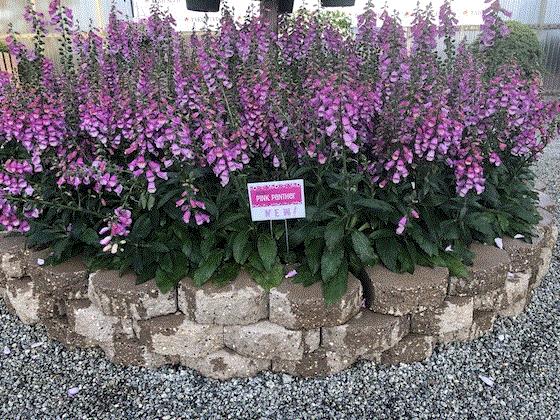
The last item I'd like to share with you this week is Digitalis Pink Panther. Although American Takii isn't marketing this as a perennial, it definitely is a worthy contender to compete with other first-year flowering digitalis on the market.
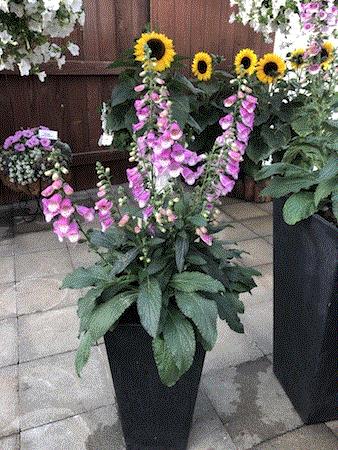
Yes, you should also note that digitalis traditionally are classified as biennials and with Pink Panther being an F1 hybrid that easily flowers uniformly the first growing season, I can see why they might not be thinking of perennial growers as their customers. However, if you already grow digitalis in your perennial programs, there is no reason Pink Panther wouldn't be a good fit. It doesn't require cold, is well-branched, and just look at its flower power.
That's All For Now
Did you like what you saw in this week's newsletter? I hope so, and let me reassure you that there's more to come. This was just a sampling of the new introductions I saw from the first four stops of my California road trip. I'll feature more great perennials in the next newsletter in early April.
Also, before I sign off, I wanted to remind you to take another look at the osteospermum and cleome images I shared above and let me know what you think is going on. Please send your thoughts, comments and questions to me at ppilon@ballpublishing.com.
Thanks for reading this edition of Perennial Pulse. Are you getting spring fever? What challenges are you anticipating this growing season? Feel free to drop me a line with any questions or article ideas you may have. You can also send me a quick "hello" anytime. I'd love to hear from you.
My email is ppilon@ballpublishing.com.
Take care,
Paul Pilon
Editor-at-Large
Perennial Pulse
This email was received by you and over 34,056 subscribers!
If you're interested in advertising in Perennial Pulse, contact Kim Brown ASAP and she'll hook you up.